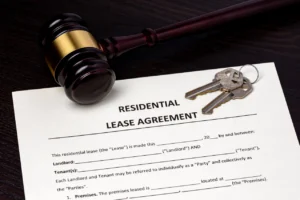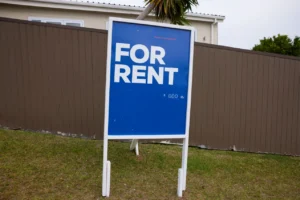An Overview for CA Landlords

When and How to Deny a Rental Application
Denying a rental application is sometimes necessary to protect your property, your other tenants, and your investment. However, in California, landlords must follow specific legal and ethical guidelines when evaluating applications.
Below, we’ll explore when and how to decline a rental application lawfully and professionally. We’ll also share tips for documenting your decisions and maintaining compliance throughout the process. While this guide does not substitute legal advice, it can provide you with a place to start if you’re unfamiliar with the basics of rental application denial.
Your Rights and Responsibilities as a California Landlord
Every landlord should start with a clearly defined screening process. Having consistent criteria in place protects you from discrimination claims and helps ensure fairness across all applicants. When reviewing a rental application form, be sure to treat every applicant the same.
In California, landlords must comply with the Fair Employment and Housing Act (FEHA) and the federal Fair Housing Act. These laws prohibit discrimination based on things like:
- Race or national origin
- Religion
- Disability or medical condition
- Familial status
- Gender identity or sexual orientation
- Source of income
To stay compliant, avoid making subjective decisions or assumptions during the tenant screening process. Apply your standards equally to each rental application.
Common Legal Reasons to Deny a Rental Application in California
The decision to deny must be based on legitimate, well-documented reasons. Here are some of the most common lawful grounds for denying a rental application in California:
- The applicant’s income does not meet your stated requirements. For example, many landlords require a monthly income that is at least 2.5 or 3 times the rent amount.
- The applicant has a poor credit history. This may include issues such as unpaid debts, a pattern of late payments, bankruptcies, or accounts in collections.
- The applicant has prior evictions or negative references from past landlords. These issues may indicate a pattern of nonpayment, lease violations, or property damage.
- The applicant provided false or incomplete information on the rental application form. Inaccurate employment history, missing contact details, or intentionally misleading information can be valid reasons for denial.
- The applicant’s employment or income could not be verified. If you are unable to confirm income through pay stubs, employer contact, or other reliable means, that may justify a denial.
- The applicant has a criminal history that raises legitimate concerns. However, any decision related to criminal records must be made on a case-by-case basis and in full compliance with applicable California laws, so learning more is best since this may not be a valid reason to deny their application.
Landlords must avoid blanket policies or screening criteria that could have a discriminatory impact. This is just a brief overview of application review, so always check with a legal professional to ensure your process aligns with current state and federal regulations.
Need Legal Help?
Chat with a real estate lawyer near you. It’s only $5 for a 1-week trial. Ask unlimited questions.
How to Decline a Rental Application Professionally
When you decide to move forward with another tenant, it’s important to notify applicants who were not selected. The most professional way to decline a rental application is through a written notice—ideally, a formal letter of denial of rental application. This letter should be brief, respectful, and limited to relevant, factual information.
Avoid including unnecessary detail that could be misinterpreted. If a credit report or background check played a role in the decision, you are required to issue an Adverse Action Notice in compliance with the Fair Credit Reporting Act.
Even though you are not legally required to explain the denial in detail unless credit information is involved, maintaining a courteous and professional tone helps reduce the risk of disputes and protects your reputation as a landlord.
The Importance of Documentation
Detailed documentation is your best defense if a rejected applicant challenges your decision. Always keep records of:
-
Your screening criteria
-
Completed rental application forms
-
Credit and background reports
-
Notes on interviews or reference calls
-
A copy of the letter of denial of rental application
-
The date the applicant was notified
Store these materials securely for at least a few years in case questions arise later. Following a uniform documentation process also supports consistency in how every rental application is handled.
Denying a rental application is a necessary part of protecting your investment, but it must be handled with care, consistency, and professionalism.
Source: Genuine Property Management













 Accessibility
Accessibility